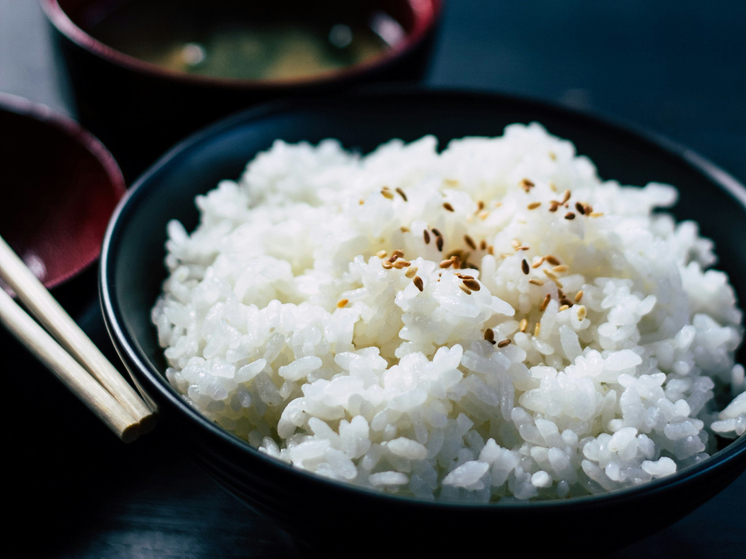The expert named the main risks associated with production
The Russian government has extended the ban on the export of rice and rice cereals — now until the end of 2024. The draft resolution, which has already been signed, was prepared by the Ministry of Agriculture. And solely to protect its domestic market. What does it need to be protected from?
 Photo: unsplash.com
Photo: unsplash.com
At the end of May, Deputy Prime Minister Dmitry Patrushev said that the volume of rice production in our country was increasing, “but has not yet reached the levels that would allow us to feel comfortable in the domestic market.” Apparently, to achieve this peace of mind, the government bans the export of this popular crop.
We recall that for the first time an embargo on the sale of rice was introduced on July 1, 2022, after a large-scale accident at the Fedorovsky hydroelectric complex in the Krasnodar Territory. It occurred in April 2022, as a result of which the country lost more than 200 thousand tons of rice. However, the dam was restored very quickly, but in May of the same year… there was a man-made disaster there again…
In general, the hydraulic structure, which supplied water to more than 40% of the region’s rice paddies (the main rice producer in Russia), was left without water. From then on it went…
From July 1, 2022, Moscow temporarily, until January 1, 2023, banned the export of rice. But, as they say, in Russia there is nothing more permanent than temporary. From January 1, 2023, cereal exports were extended until June 30 of the same year, then for another half a year — and now until the end of 2024.
Most likely, the issue rests on the Fyodorovskaya dam, which has not yet been put into operation. As we were informed by the National Rice Union, whose headquarters are located in the Krasnodar Territory, the dam has been completely destroyed and will have to be built from scratch.
In fact, we need 600-700 thousand tons of rice for domestic consumption. The Ministry of Agriculture sets a maximum task for rice growers: 1.2 million tons per year — so that some can be exported, well, and so that the country has a surplus for a «rainy day». Following the example of wheat — its last year's reserves still amount to millions of tons.
Therefore, Russians are asked not to worry about the prices for this cereal. Last year, about 1.1 million tons were collected in Russia, which was slightly short of the target. But these volumes are enough for the domestic market and there will still be some left in reserve.
Russia is not such a great rice power that the export ban would somehow affect world prices. Globally, our country exports only about one percent — 200 thousand tons, as a rule, to neighboring countries. And we consume on the domestic market, as has already been said, no more than 600-700 thousand tons.
It turns out that at least 300 thousand tons from harvest 23 ended up in our wasteland. Even if the Kuban peasants harvest a minimum harvest (which, of course, will not happen), then taking into account import supplies (we traditionally purchase 200 thousand tons of delicious long-grain rice in India, Vietnam and Thailand), we will have enough rice to feed ourselves in 2025.
With this positive trend, rice prices are somehow going up this year. So, if in the first six months of 2023, according to Rosstat, they were stable, within 110 rubles per kilogram, then this year they are 123 rubles (in January) and almost 130 rubles in June.
What to expect next? It’s just that our government doesn’t prohibit the export of agricultural products. Should we make purchases for a rainy day while prices are still more or less acceptable? As you know, rice and buckwheat are strategic cereal reserves for Russians. Apparently, many of our fellow citizens are still “finishing” the cereals that they purchased during the coronovirus pandemic.
The union of rice growers in the Krasnodar Territory reported that their summer is very hot, strong winds , there is a catastrophic lack of moisture and it quickly evaporates. In short, the main supplier of the cereal beloved by Russians does not have high hopes for the future harvest.
“Two points are visible in the situation with rice,” says independent agricultural expert Alexander Korbut. — The first is the consequences of an accident at a waterworks in the Krasnodar region. Second, the authorities have concerns that “something could go wrong” with prices. It’s no secret that in our country they increase on any occasion and under any pretext, including in Fig. Perhaps it is not necessary to introduce a ban on exports, because we produce more than we consume. You can simply announce export quotas. Formally, they even exist; Russia continues to supply rice to the EAEU countries. But with quotas, there is also the possibility of informal transit, which, apparently, the authorities want to avoid.


